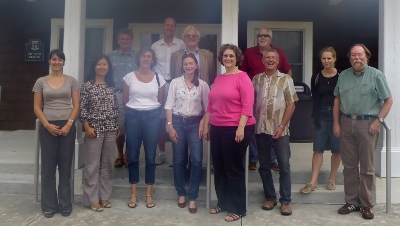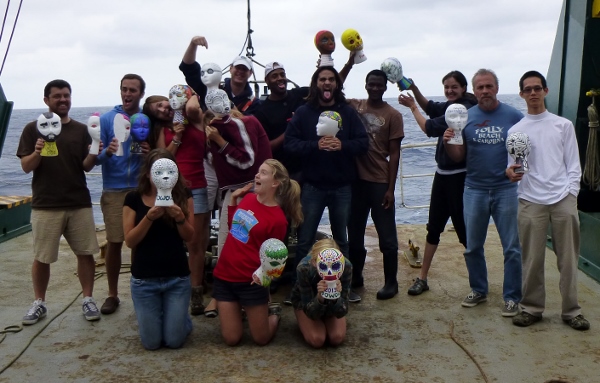In an article to appear in PLoS ONE, the PICO team describes the natural variability of ocean acidity (pH) at an estuarine site near the Duke Marine Lab. The team found that the natural level of variability over the course of a year exceeds the long term predictions for acidification […]
Yearly Archives: 2013
In an article appearing in today’s issue of EOS, Zackary Johnson and Dave Johnston discuss how smartphones are changing the way geoscience is taught. Smartphones and other personal electronic devices are now allowing students and the public to measure ocean color, record species encountered, visualize environmental acoustics, document the distance […]
ZIJ visited the Elkem Salten silicon plant in Norway to explore the use of microalgae to capture carbon dioxide. The Elkem plant uses coal and coke along with electrical power to produce various forms of silicon and silica of use in many commercial applications. In the process, the plant releases […]
Summer 2013 REU student David Hurley presented his research at the Coastal and Estuarine Research Federation (CERF) 2013 meeting in San Diego. His 10-week research project focused on quantifying how increasing temperatures will affect the carbon uptake and allocation of phytoplankton and he used Prochlorococcus as a model organism. An […]
Remember when you first heard about DNA replication, cellular structure and photosynthesis? That’s a lot to handle! Now imagine hearing about it for the first time in a language other than your mother tongue and that you are learning at the same time. This is the situation of some Hispanic […]
ZIJ presented results on the variability of pH and DIC at PICO at the 2nd Ocean Acidification Principal Investigator meeting held at the Kellogg Conference Center that was organized by the Ocean Carbon and Biogeochemistry group. The meeting is part of an ongoing effort to coordinate efforts among ocean acidification […]
The Johnson Lab traveled to Knoxville, TN to work with our collaborators in the Zinser Lab (University of Tennessee Knoxville), on an experiment to investigate the carbon and nitrogen metabolism of Prochlorococcus. Using both traditional carbon uptake techniques through advanced metabolomics approaches, the experiment was designed to quantify how Prochlorococcus, […]
The Duke Marine Lab hosted 20 international collaborators who met August 14-17 to present research and develop future research plans to mature the science of using marine microalgae (phytoplankton) as a feedstock for energy and fuel. Representatives of the algae biomass consortium include university labs (Duke, Cornell, San Francisco State, […]
The Johnson Lab participated in Duke University Marine Lab’s annual Open House on Saturday, August 3rd. Members of the community were welcomed to Piver’s Island to visit campus and learn about the variety of ongoing research at DUML. At their station inside the Repass Center, the Johnson Lab explained their […]
The Johnson Lab returned from a successful POWOW3 cruise having traveled more than 5000 miles in the Eastern North Pacific Ocean on a route from Hawaii to California. The goal of this research cruise, the third (and final) in the series to study Plankton in Warming Ocean Waters (POWOW), was […]









